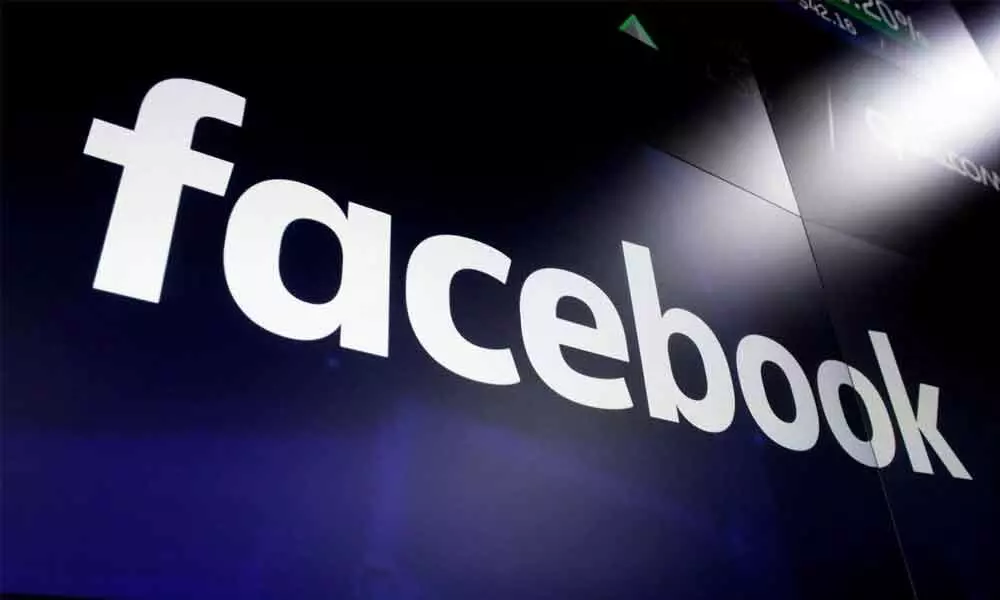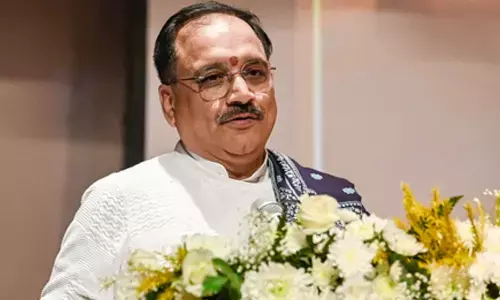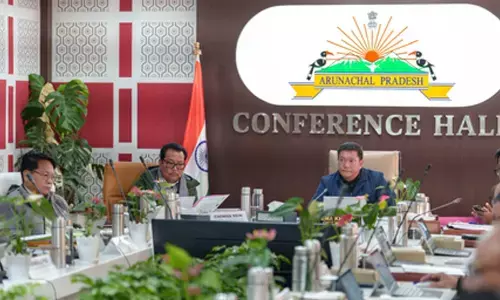Facebook again refuses to ban political ads, even false ones
 Facebook
FacebookFacebook reaffirmed its freewheeling policy on political ads Thursday, saying it won’t ban, fact-check them or limit their reach in any way.
Despite escalating pressure ahead of the 2020 presidential election, Facebook reaffirmed its freewheeling policy on political ads Thursday, saying it won't ban them, won't fact-check them and won't limit how they can be targeted to specific groups of people.
Instead, Facebook said it will offer users slightly more control over how many political ads they see and make its online library of political ads easier to browse.
These steps appear unlikely to assuage critics — including politicians, activists, tech competitors and some of the company's own rank-and-file employees — who say that Facebook has too much power and that social media is warping democracy and undermining elections.
And Facebook's stance stands in contrast to what its rivals are doing. Google has decided to limit targeting of political ads, while Twitter is banning them outright.
"Today's announcement is more window dressing around their decision to allow paid misinformation," said Bill Russo, a campaign spokesman for Democratic presidential candidate Joe Biden.
Social media companies have been trying to tackle misinformation since it was learned that Russians bankrolled thousands of fake political ads during the 2016 elections to sow discord among Americans.
The fears go beyond foreign interference. In recent months, Facebook, Twitter and Google refused to remove a misleading video ad from President Donald Trump's campaign that targeted Biden.
Facebook has repeatedly insisted it won't fact-check political ads. CEO Mark Zuckerberg has argued that "political speech is important" and that Facebook doesn't want to interfere with it. Critics say that stance gives politicians a license to lie.
TV stations and networks aren't required to fact-check ads either, but social media gives candidates a certain advantage: the ability to "microtarget" their ads.
For instance, they can use information gleaned from voter rolls, such as political affiliation, and try to reach just those people. Or they can narrow the target audience to those who have shown interest in guns, abortion or immigration, based on what the user has read or talked about on Facebook. Candidates might even show one ad to young Democratic women interested in both gun control and climate change, and a different ad to everyone else.
Google, the digital ads leader, decided in November to limit political-ad targeting to just three broad categories — sex, age and location, such as ZIP code.
Under Google's policy, candidates would be free to show immigration ads next to immigration-related stories only; they wouldn't be able to show ads to just Democrats or Republicans, or target people specifically interested in immigration when they're reading about baseball or Beyonce.
Google said that approach aligns its policies with those of other media such as print, TV and radio.
Jason Kint, CEO of Digital Content Next, a trade group that represents digital publishers, said Google's ban on microtargeting is much better than Facebook's permissive stance. Making sure ads reach a wider, more diverse group of people can enable the public and the press to see, debate and correct claims in them, he said.
"Sunlight is the best disinfectant," he said.
Facebook said in a blog post Thursday that it considered limiting microtargeting for political ads. But it said it learned about the importance of such practices for reaching "key audiences" after talking with political campaigns from both major parties in the US, political groups and nonprofits.
The company said it was guided by the principle that "people should be able to hear from those who wish to lead them, warts and all, and that what they say should be scrutinized and debated in public."
Facebook does plan to let users choose to see fewer political and social-issue ads, although it won't let people exclude them entirely. It's also going to let people choose whether or not to see ads, political or otherwise, from advertisers that target them using their contact details, such as email address or phone number.
The company is also tweaking its ad library so people can search for exact phrases and limit results using filters such as dates and regions reached. Facebook's ad library currently lets anyone find out how much was spent on an ad, how many times it was seen, and the age, gender and location of the people who saw it.
Facebook also called for government regulation of political ads, saying private companies should not be the ones to make rules about them. Experts say one of the big problems with political advertising online is the lack of a federal standard about what is and isn't allowed.
"Facebook and Twitter should not be making these decisions themselves," said Daniel Kreiss, a journalism professor at the University of North Carolina. "In the absence of any standards, you get the mess we're seeing now."
Sam Jeffers, co-founder of Who Targets Me, an advocacy group researching political advertising, also said individual companies shouldn't be deciding whether to allow political ads and what limits to set.
"It shouldn't be up to Facebook to decide what a lie is or isn't," he said. "It should be up to journalism and other forms of accountability."














